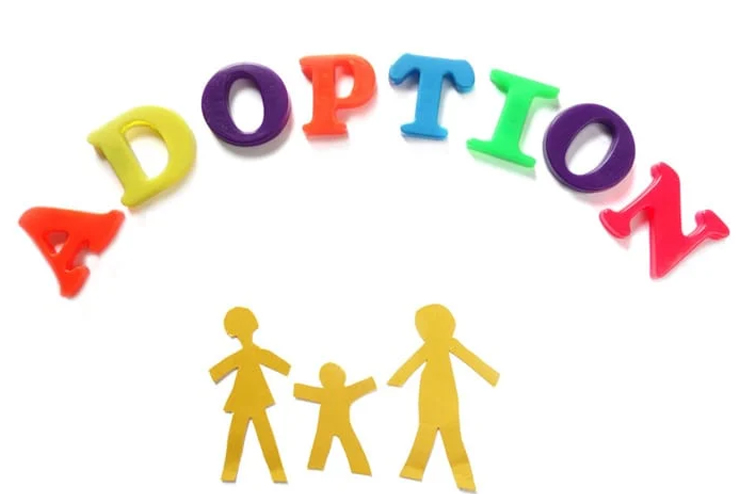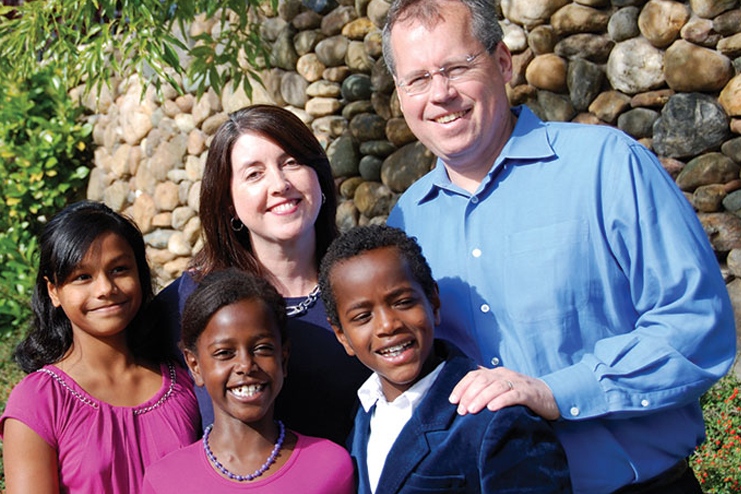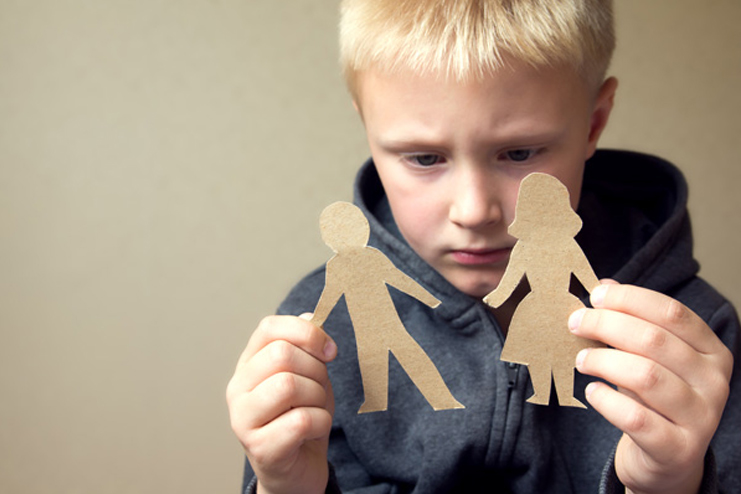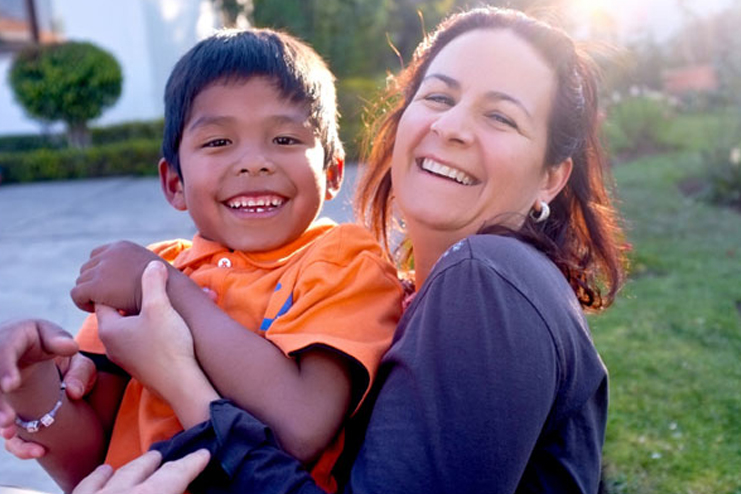One of the biggest challenges of the parenting is to raise an adopted child. Adopted child may show many kinds of psychological problems. The response of child to adoption varies from child to child. So, it is most necessary to make yourself well prepared to face the challenges before adopting.
Some adopted children may find it difficult to adjust to the home environment of their adopted parents. Most of the adopted children are at the risk of various psychological problems.
This article discusses the challenges faced by the adoptive families. It presents some of the psychological problems that the adopted children face.
Types Of Adoption?

When you think to grow your family through adoption there are several ways available and the thing you need to determine is right for you. There are several types of adoption and the type of adoption plays a prominent role in the behaviour of the children. Here are the main important types of adoption that you should know:
1. Public adoption:
In public adoption, children placed with the public adoption range from newborn to 17 years. It is the more usual process of adopting the children through public adoption. The goal of the foster system is to reunite the biological parents and the children. The typical wait time ranges from 1-5 years. It takes more time to adopt the child this way.
2. Private adoption:
It is also known as independent voluntary placement. In this adoption the birth parents directly place the child for the adoption by the family of choice.
Public adoption is affordable when compared with the private adoption.
3. International adoption:
In this adoption couple become the legal parents of the adopted children from a different country. Children adopted through this process can be infants, toddlers, or school age children, and can be from the sibling groups. Most of these children might have spent most of their time in orphanage.
Challenges of Adoptive Families:

Here are a few challenges associated with the adoption that you must know.
1. Financial Challenges:
The financial factors of the adoption depend on the type of agency that you choose. If you choose the private agency for adoption, then you have to pay more including adoption fee and other expenses when compared to the public agencies. You need to pay more, if you are planning to adopt a child from a foreign nation.
2. Legal Challenges:
It is very important to known the legal formalities that are associated with the adoption.
Make sure that both the birth parents know about the adoption. If you fail to make any one of the birth parent aware of the adoption. You may face many legal challenges in the future.
3. Health Challenges:
In case of closed adoption, it is very easy to know the health history of the adopted child. Access to the child’s medical history may become a bit more difficult in case of open adoption. This may create problems in the proper caring of the child. Getting a complete picture of your child’s health is more important as you may not make proper financial access for the adopted child’s health care.
4. Emotional Challenges:
Adoption offers both the birth parents and the adopted parents many challenges.
Here are a few emotional challenges that you may encounter:
- The adopted child may not adjust to your family, this happens especially with the older children.
- In case of closed parenting, both the birth parents and the adopted child often feel emotionally disconnected as there exists no communication after the adoption.
- Children may worry about the reasons that his birth parents gave him/her for adoption.
- You may take some time to get connected to the adopted child emotionally.
- If you have a birth child, it may be difficult for them to accept the adopted child as a sibling.
5. Ethical Challenges:
Adoption can lead to some ethical challenges.
The adoption agency may have violated the birth rights of the parents or hide some crucial health issues.
In the case of international adoption, the child may have some illegal issues.
6. Cultural Challenges:
If the adopted child is from different cultural background, he/she may find difficulty while adjusting to your culture.
7. Foreign Adoptions:
When you are adopting a child from a foreign country, you must know the legal issues associated with the child’s home country and the country of the adoptive parents. For example, Citizens of the USA are not allowed to adopt children from certain countries like Fiji, Senegal, Rwanda, and few others.
Benefits that adopted child will get:
Child is made to be adopted for the various reasons ranging from financial issues to physical, mental, or emotional difficulties. Child who enters the adoptive family may get many benefits. Some of them include:
• Child will get an opportunity to spend more time as the family.
• The ability to pursue higher education
• Child will get safe and stable home environment.
• Child will benefit from the extended family
Why do adopted kids have behavioural issues?
Adopted kids are at the risk of mental health issues. These behavioural issues and their severity may vary with the type adoption like domestic infant, foster care, and international adoption.
The other factors that impact the behaviour of the adopted children are:
• Stress during pregnancy
• Exposure to alcohol and drugs during pregnancy
• Poor nutrition during pregnancy
• Genetics
• Neglect or abuse
• Attachment problems
Adopted Child Psychological Problems:

In some cases, adoption may affect the behaviour of the child adversely. You must know the psychological problems associated with the adopted children in advance so that you can make yourself strong and ready to face the challenges:
1. Feeling of Rejection:
Adopted children may show negative feelings when they come to know that they are adopted. They may develop some negative feeling like their biological parents may not love them and that is reason for leaving them for the adoption. These negative feelings may impact the psychological growth of the children.
2. Adopted children may have trouble in the school:
Adopted children often exhibit poor grades in the school. This is because of their poor or lack of attachment with their adopted parents. Because, Children who have the parents involved in their studies are more likely to get good grades in the school. The environment in which they were grown up at their birth parents like alcoholism, substance abuse, and neglect may greatly affect the brain development of the child.
Adopted children may find difficulty in creating the healthy networks in the schools or in the social environment.
3. Children may feel separated from their parents:
It is difficult for the biological parents to diagnose that the children experience the feelings of the grief and loss related to their adoption. They may struggle to forget their birth parents, siblings, grandparents and the extended family. This problem especially becomes more when the children are adopted at their school age.
4. Externalized behaviour problems:
These are the negative behaviours which are exhibited by the children who are unable to cope up in the adopted family. These negative behaviours encourage the child to go out breaking the rules and fight and make arguments with the classmates.
5. Attachment Disorders:
This is one of the psychological effects of adoption on child. Adopted children may take some time for getting connected with the adopted parents and their biological children. They may feel uncomfortable to open their attitude in the new family.
If the adopted children keep on avoiding the attachment with the adopted family members, they might encounter various emotional problems like depression, anxiety, addiction, self threatening in the long run. The emotionally disconnected children are more vulnerable to develop violent behaviours when they grow up.
6. Child may suffer from self identification:
When the adopted child is aware of their adoption, they may start some identification queries. They may make you engaged with the several questions related to the identity of their biological parents. If you fail to give them proper answers, they develop some internal misperception that make them grow with negative thinking.
7. Lack of Self Esteem:
Many studies suggest that adopted children are less likely to have the levels of self confidence and self esteem. Growing away from their birth parent make them feel they are at the loss of their own identity. Secrecy surrounding them may offer them a indirect negative environment making them feel less confident and distressed.
8. Difficulties with the food:
Adopted children may exhibit some bad food related problems depending on their birth family background.
- Some children may exhibit extreme fussiness as they can not handle the new foods that are being served to them.
- When the kids see their favourite or different food items at the table they will eat beyond the limits without concerning their tummy.
9. Childhood Trauma:
Childhood trauma can make the child to display some negative and opposing behaviours. This may create physical and mental disorders in the child in the long run. Birth environment or the factors that moved them to adopted environment may make them to develop traumatic behaviour.
Tips to manage post adoption issues:

Here are a few tips to deal with the adopted child psychological issues:
• Communicate honestly and openly with your child. Don’t force your child to talk before they are ready. Make adoption as a general topic of conversation.
• Know as much as you can about your child’s pre adoption history. Know the interests of the child and help them to plan their career.
• Provide stable, loving home environment for your adopted child. Develop some daily routines and help them to communicate more with all the family members.
• Help the child to make the age appropriate choices, and build confidence and self control in them.
• In case of any need consult therapist or behavioural specialist, they can help you and your child to cope with any post adoption issues. These professionals can help you to understand your child and their needs. Apart from the therapy and counselling, support groups, camps, and social events will help to protect the mental health of your adopted child.
• Create a strong bond with your adopted child by helping them to so some crafts and encourage them towards the activities that stimulates closeness, and some games to promote the bonding.
In conclusion, regardless of the type of the adoption some children can cope well with their emotions and behaviours due to their early life experiences.










































